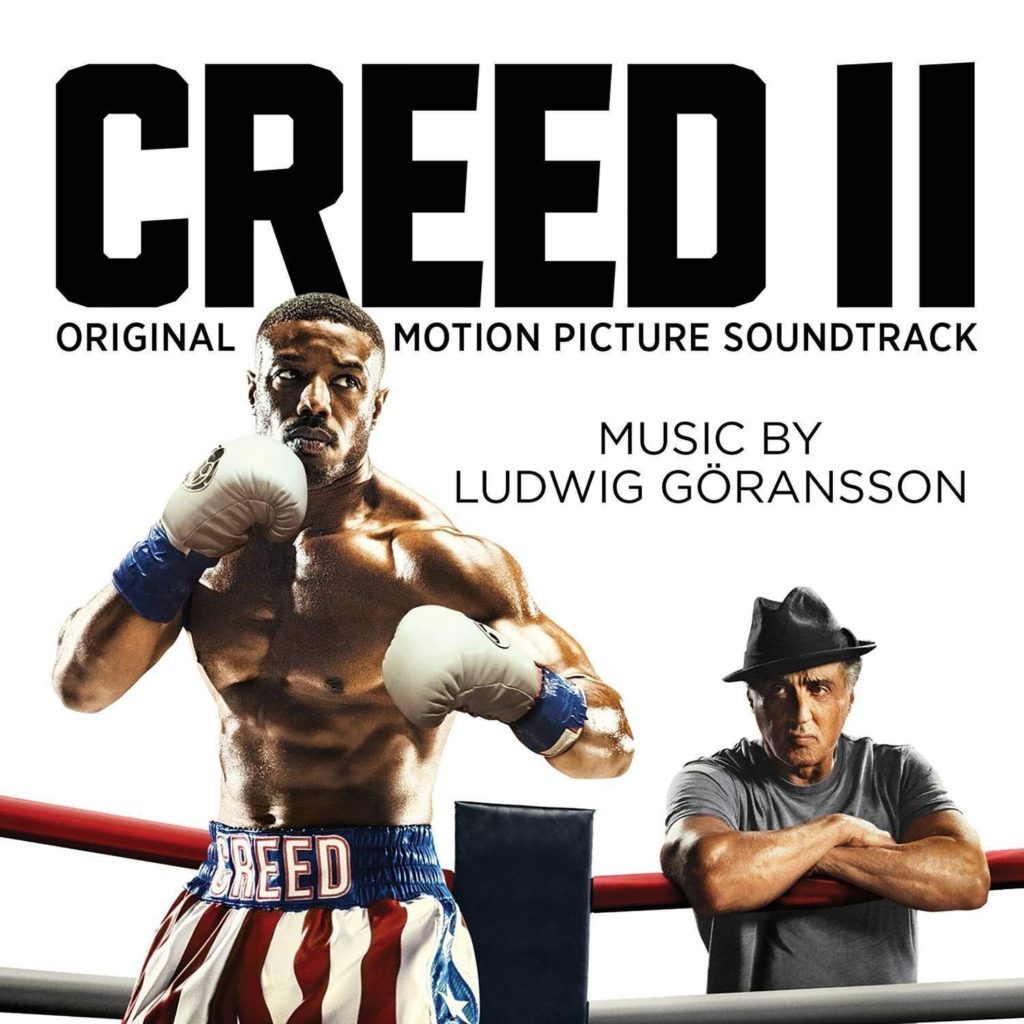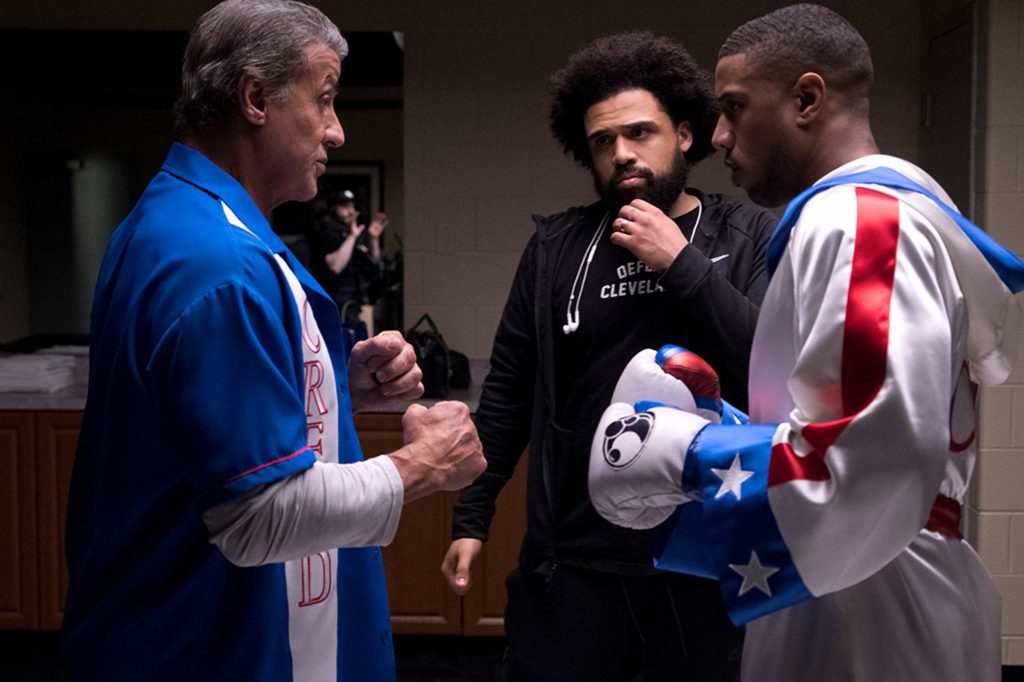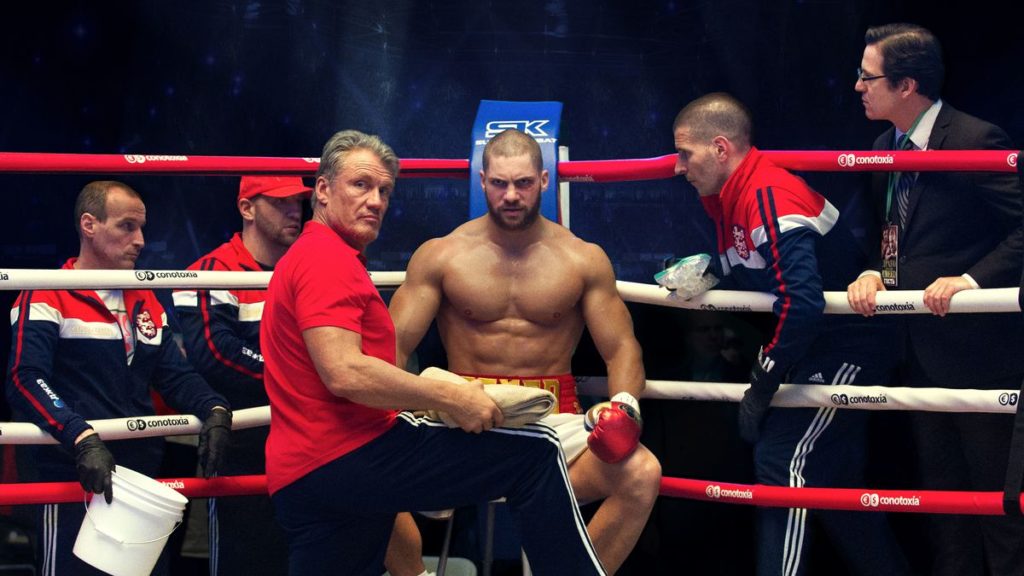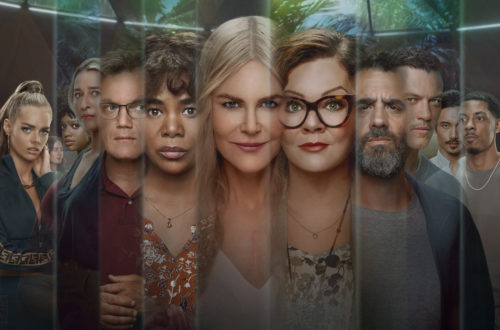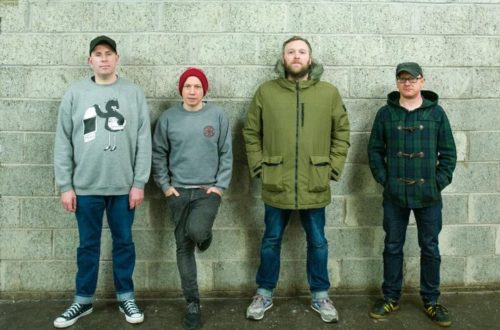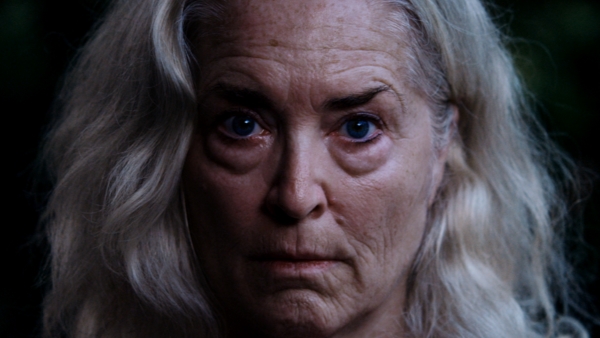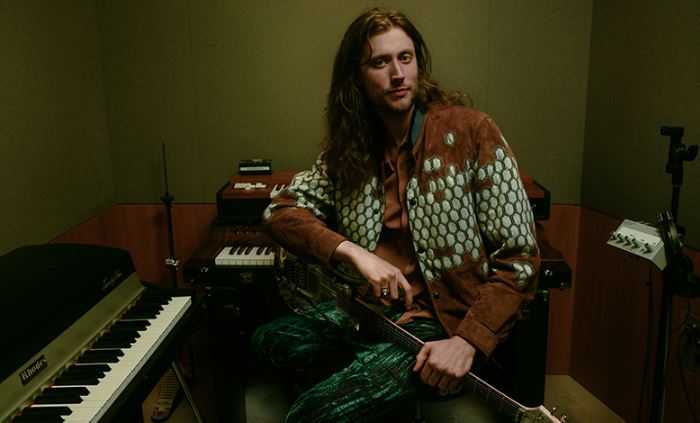 2018 has been a tremendous year for Swedish-born Ludwig Göransson. He’s composed music to five films released this year alone to say nothing of his TV and songwriting credits. A phenomenal musician, and, seemingly, the hardest working man in the business, he’s quick to shrug off the praise, but his output is as varied as it is prolific. Humbly, Göransson says that he’s focused in the studio, and puts in long hours, but doesn’t work all night long.
2018 has been a tremendous year for Swedish-born Ludwig Göransson. He’s composed music to five films released this year alone to say nothing of his TV and songwriting credits. A phenomenal musician, and, seemingly, the hardest working man in the business, he’s quick to shrug off the praise, but his output is as varied as it is prolific. Humbly, Göransson says that he’s focused in the studio, and puts in long hours, but doesn’t work all night long.
However he gets it done, Göransson‘s work speaks for itself, and his projects truly run the gamut. Ryan Coogler’s Creed didn’t just surprise us, it knocked us out cold. In short, the Creed films have given the themes and characters of Stallone’s series new life.
Much of that success of this new franchise was credited to Göransson‘s music which was a reverent blend of key Bill Conti’s themes, but also a lot of powerful and tender compositions. Side note: if you’re a soundtrack fan, and love Coogler’s film, you should check out the “Composer’s Cut” edition of the score (released by Mondo – read our review here). It truly gets better with each listen.
So, yeah, we’re fans, and were thrilled to speak to Göransson about his contributions. We had a very breezy exchange with this talented musician, and, by way of Göransson side-stepping one topic, we might have just gotten an exclusive bit of info about Donald Glover‘s upcoming/secret film.
Anyway, as a way to tie this interview into the film, I thought it would be fun to “go the distance” with him. Instead of 12 rounds, I tried for 12 questions in 15 minutes. Did I make it? Find out below…*ding, ding*
GoSeeTalk: In the Creed films, Rocky is a coach, a trainer, an uncle/surrogate father figure. Who in your life is your “Rocky”?
Ludwig Göransson: My Rocky would be my Dad. That’s the connection I made with both of the Creed films, and it’s because of the father and son story. When I was 5, he put a guitar in my lap, and we really bonded over music, guitars especially, and we still do. He’s my biggest fan.
Being that the films deal heavily with fathers and sons, this sequel is about two boxers trying to put their lives back together, and, more important, get out from under the shadow of their fathers. They are more alike than they realize, so what were some of the terms and ideas that you and Ryan Coogler and Steven Caple Jr. used to communicate this story?
Even though these are very masculine stories about boxing, and two men fighting for most of the movie, we always talked about emotion. That aspect alone was one of the main points we wanted to hit, and not be afraid to give these fighters real emotional attention through the music.
Your triumphant Creed theme came out of one particular scene in the Coogler’s film – Adonis and Binaca’s first date. Was there difficulty writing variations? And did you have any hesitation about composing your first sequel?
No, I think by the time I started on Creed II, I was already on track. I had the “Creed” theme like you mentioned, I was comfortable using the famous Rocky theme, and I had worked with Michael B. Jordan on a couple movies so I was pretty good at reading his emotional performance. I was all-in and I tried to have as much fun as possible.
There was a lot of experimentation in the first film, and you recorded a lot of gym and boxing equipment sounds that didn’t end up in the movie. Now that you had your palette at the start of Creed II, am I correct that there was much less experimentation since you already had your palette?
You’re right. There’s always experimentation in every movie, but the first film was unique because we didn’t know what we really wanted. Did we want Rocky music in there? If so, how much would we use? We didn’t really know what the music was going to be. But here, we were entering a familiar world even though I was trying to put a new spin on it.
The real emotional heartbeat of the film seems to come from what you scored with electric guitars. Those themes and your guitar work is fantastic. Since your Dad introduced you to it, is that your go-to instrument when you have an idea in your head?
No, for me it’s the piano because it’s almost always right in front of me. But it really helps to be very versatile and a multi-instrumentalist when you’re writing music today. The production element of the music is a huge factor in the music world today.The more instruments you play, the more access you have to different sounds, and the more you can be inspired by those sounds. I remember that when I wrote the main theme for Creed, I wrote the chords on guitar and the melody on piano.
In the track “Fight in Moscow” you weave in and out of different themes – Creed’s, Viktor’s, and then “Going the Distance” from Rocky. What went into blending and balancing those all together?
Bill Conti’s theme is such a good theme and we just wanted use it in the best possible way. It’s just trial and error working with the edit of the film to see what we’re happy with and what works, and what’s right in the moment. In the first Creed film, we were very particular about the right moment to use it to get people out of their seats and get them excited.
Going back to what you said about emotion, at the core, these films are about character more than the boxing. So do you have a favorite character, ether in this series or the earlier films?
As a child, I was always intrigued by the visual of Ivan Drago. He’s also a big star in Sweden, which is where I am from, and he was so awesome that he’s almost like a comic character. He’s a super hero in many ways. So coming back for the sequel, and then getting to write a theme for him was really, really fun.
I like the way the Viktor Drago’s walk out music turned out, and you also wrote great songs for Tessa Thompson, so when it comes to composing for a film, is there anything you don’t do?
No, I think I do everything. [Laughs] There’s always things that I don’t do, and things I want to get better at, and I’m studying to be a better composer. That’s a question that goes through my head a lot when I’m writing. I ask myself “why don’t I do this?”, “why don’t I do that?” So, one day, I will, whatever it is. [Laughs]
The sounds you added to the first film really helped put us in the ring with Adonis; the speed bad sound was prominent in the Sporino fight. I’d really like to hear more of that. When you released the “Composer’s Cut” of Creed for Mondo, it had dialog taken out of those cues, so do you plan to release unused tracks, test tracks, or a “composer’s notebook” from these two films?
I don’t think anyone wants to hear that. [Laughs] So I’ll keep that for myself. [Laughs]
Every character, in and out of the ring, has grown across these films, and now Adonis has gone the distance. When in your life do you think you’ve gone the distance? Was it on a score/album, any project, or learning an instrument or style of music?
I think what really pushes me in each film is to bring a very different sound and specific palette to every project I’m doing. For instance, in Fruitvale Station, I went to the BART train station and recorded the train sounds, and I turned those sounds into music. For Creed, I made beats and sounds out of people jumping rope and people hitting the bag.
For Black Panther, I spent a month in West Africa recording, and researching, and immersing myself in culture there. So, for me, going the distance is, for me, to treat every project with a lot of heart and give them the attention that it needs to give them their own unique musical voice.
Part of growing as an artist is building and expanding on talents and experiences. What you did for Black Panther elevated you and put you into a different class of musicians. But is there something you’ve learned/kept from past project that you now look to use on something in the future?
There’s always some things that I don’t get to use when I’m writing for a film, or producing for an artist. But I don’t have a collection of lost themes on a computer somewhere. What I do have, I try to store them in my memory for my own projects, or when I work on stuff for myself. They’re just for me.
You had a cameo in the first Creed film in the Electric Factory. Were you somewhere in Creed II that I missed? And, finally, you also had an awesome performance with Donald Glover when you two played SNL earlier this year.
That song, “Saturday,” is catchy and your guitar riff is so cool. Will that song be released soon? I bet that is part of Donald’s ‘Guava Island‘ project, isn’t it? The whistles and drums seem like they give it away.
[Laughs] Oh, man. I wish I could tell you, man…I really do. But it’s a great song, and a lot of fun. I really wish I could tell you…
Really, you’re knocking me out in the 12th? I was so close. [Laughs]
[Laughs] Well, as for Creed II, maybe you’ll see me on the bonus features.
Really? So is that an exclusive?
Well, maybe not. I actually haven’t seen it so I don’t know.
You’ve got some poker face.
[Laughs]
Well, it’s been fantastic speaking with you, and thank you for your contributions to the Rocky franchise. Your work is tremendous, keep up the good work.
Thank you so much!
Thanks to Ludwig for his time. Creed II is directed by Steven Caple Jr. from a screenplay by Sylvester Stallone. The film stars Michael B. Jordan, Tessa Thompson, and Sylvester Stallone and had its theatrical release on November 21. Ludwig Göransson’s score was released on November 16.
